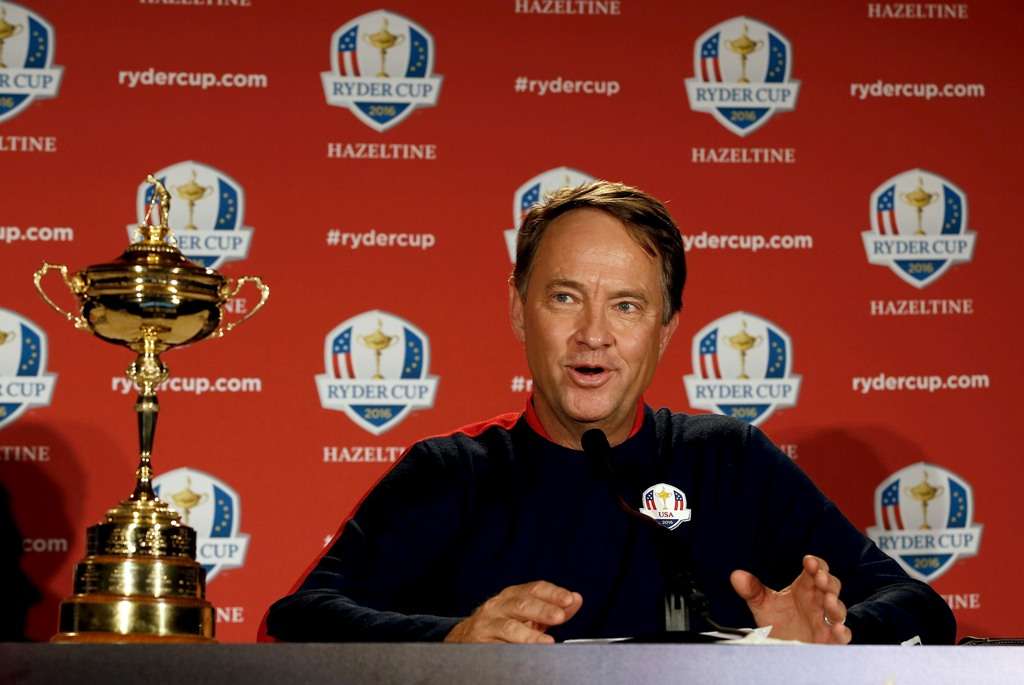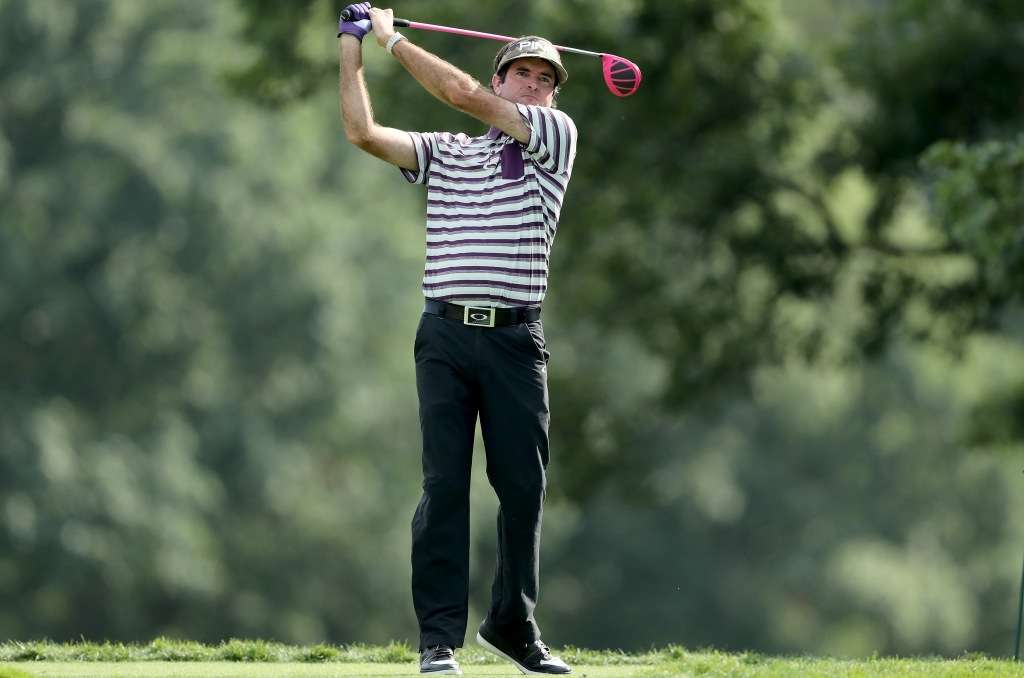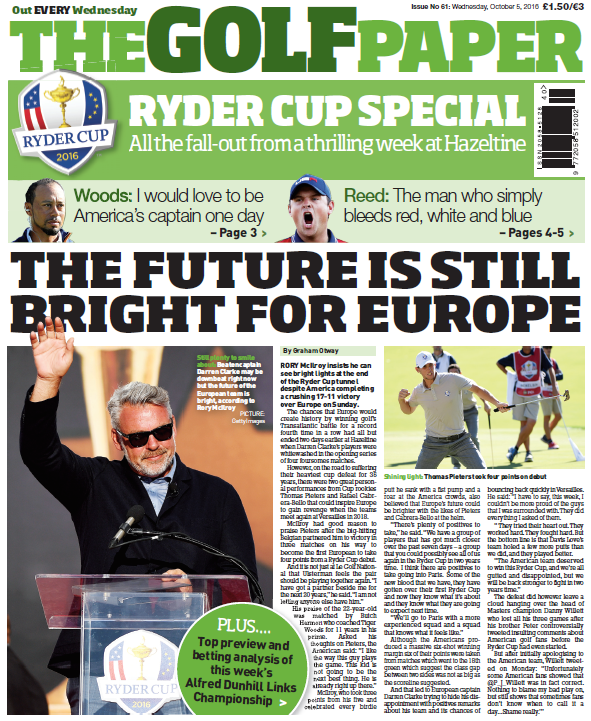Features
There’s no Love for Bubba as captain calls on Fowler, Kuchar and Holmes for cup assault

Picture: Getty Images
Davis Love III has taken a team-first approach to his US Ryder Cup wildcard selections, explains Graham Otway
WHEN United States Ryder Cup captain Davis Love III sat down with the media at Hazeltine on Monday to name his first three cup wildcards, the phrases “team work” and “hard work” were either included in every sentence he said or were the theme behind his answers to most questions put to him.
It was almost a carbon copy of the message he sent out a month ago when he named Tom Lehman, Tiger Woods, Jim Furyk and Steve Stricker as his assistant captains.
And it was on Sunday night, as the BMW Championship came to an end at Crooked Stick, that Love talked with that team at length and concluded that JB Holmes, Rickie Fowler and Matt Kuchar should be added to the eight players who had won the automatic places to take on Europe in two weeks’ time.
Describing their conversation, Love said: “We went through a lot of scenarios. We talked about a lot of great players. It was a very, very tough decision. But we kept coming back to these three for now. These three guys are who we all really wanted.”
Love could not be faulted for sending out that message of 100 per cent support for the three golfers, but at the same time it could be interpreted by other candidates, particularly Bubba Watson, as a vote of no confidence in their ability to potentially take points off Darren Clarke’s team.
Watson, Justin Thomas, Jason Dufner and William McGirt are among those in the frame to be the fourth wildcard selection, announced on September 26.
The decision not to include Watson has to be questioned when the 38-year-old is currently ranked the seventh best player in the world with only Americans Dustin Johnson and Jordan Spieth and Europe’s Rory McIlroy and Henrik Stenson ranked higher in this year’s Ryder Cup teams.
Apart from being a two-time Masters winner, Watson also has more form behind him than Fowler, who on Sunday dropped out of the top 30 players who have qualified for next week’s end-of-season Tour Championship because he could only finish 59th in the BMW Championship.

Bubba Watson was overlooked by Davis Love III for one of the first three wildcard selections
Watson finished 20th while last month he was in contention for a medal at the Rio Olympics but eventually finished eighth. Earlier this year he won the US Tour’s Northern Trust Open.
He must still be a candidate for Love’s fourth wildcard pick, who will be named shortly after the final putt is sunk at the Tour Championship, but Love was deliberately evasive when that possibility was put to him.
He said: “Well, we looked at a lot of guys that are in the Tour Championship and some guys that aren’t in the Tour Championship, and we have got a long two weeks ahead of us.
“I’d say the players that are playing in the Tour Championship need to try to win the Tour Championship and not think about Ryder Cup points.”
But when Watson’s career record is put against those of the non-Ryder Cup squad members playing in the Tour Championship – Thomas, Kevin Chappell, Kevin Kisner, Gary Woodland, Roberto Castro, Kevin Na, McGirt, Sean O’Hair and Dufner – he is clearly in a different class to all of them.
His Ryder Cup record, too, is certainly better than Fowler’s, who in his two appearances for the US at Medinah and Gleneagles has not won any of his eight matches. Watson has won three of his. And there is one other side to Watson which, although has nothing to do with his ability to swing a club or sink a birdie putt, would undoubtedly help the American team as it attempts to prevent Europe winning the Ryder Cup for a record fourth successive time.
At Medinah four years ago and again at Gleneagles in 2014 he was largely responsible for whipping up noisy, frenzied and intimidating support for his team by allowing American fans to clap and cheer as he was hitting his drives, rather than adhering to golf’s age-old tradition of total silence when a shot is being played.
The Watson issue aside, Love’s determination to have strong team spirit in the American locker room appears to be filtering through to his players.
When Kuchar, who has been a member of the last three losing American teams, was asked his reaction to getting a wildcard, he could not have been more enthusiastic for the captain’s basic operating principle.
The bronze medallist in Rio said: “I know that the US sometimes gets knocked that they are not as close as maybe the Europeans. I always beg to differ.
“If anybody is ever in the team room, it’s amazing camaraderie that we have. It’s so much fun to be a part of.
“Every time you go into with high hopes, and you certainly think you’ve got a great chance.
“The games are never won on paper. You have to go out and play. It’s been fun for me to get to know the guys, and you really form these amazing bonds when you’re part of a team, whether it’s Ryder Cup or President’s Cup.
“I think this is my seventh team. It is an amazing bond. Every week there, every year, you get in these, you feel like you become closer and closer with the guys.
“You rotate a couple new guys in, but for the most part, you have such great feeling for each other.”
The appearance of JB Holmes, he is always referred to by his initials rather than his forenames John and Bradley, on the list of Love’s wildcards is the start of another comeback chapter in a career that was in danger of being destroyed by serious illness.

JB Holmes made Ryder Cup selection an ambition at the start of the year
As a 26-year-old, the big hitter who lies second to Dustin Johnson in the US Tour’s long-distance driving statistics table, made his Ryder Cup debut in Paul Azinger’s team which beat Europe 16½-11½ at Valhalla in 2008.
He won two-and-a-half points from his three matches, but three years later at the 2011 US PGA Championship in Atlanta he withdrew from that year’s fourth Major after shooting 80 in the first round because he was suffering from vertigo and had been for several months.
Doctors eventually discovered he was suffering from structural defects in his brain known as Chiari Malformations and he underwent brain surgery.
A month later, however, Holmes had to go under the surgeon’s knife again after it was discovered that he was allergic to the adhesive used on the webbed titanium plate that had been inserted in his skull.
Amazingly, he was back playing tournaments again within six months but in 2013 elbow and ankle injuries restricted him to six events on the US Tour.
However, those struggles are now behind him. While he has not won since last year’s Shell Houston Open, he climbed into Ryder Cup contention by finishing third in The Open at Troon and fourth at The Masters.
Asked about the call he got from Love telling him he had been selected, Holmes said: “I was very excited. It’s been one of my main goals all year to get on this team and to get that call from Davis was just a very exciting moment.
“Some of my greatest memories in golf (were) at The Ryder Cup at Valhalla. So I am just really excited to get back in the Ryder Cup format and get out there and play.
“Any time you can get to play in your home country and you know the fans are going to be behind you, it’s just a very awesome experience. Like I said, looking very much forward to that.
“ Davis, I think he’s going to be a great captain, great leader. He’s been in the situation before and he’s played in many Ryder Cups.
“So he’s got a great team around him and it’s going to be a lot of fun, and we’re just looking forward to getting out there and getting to Hazeltine and playing well.”





